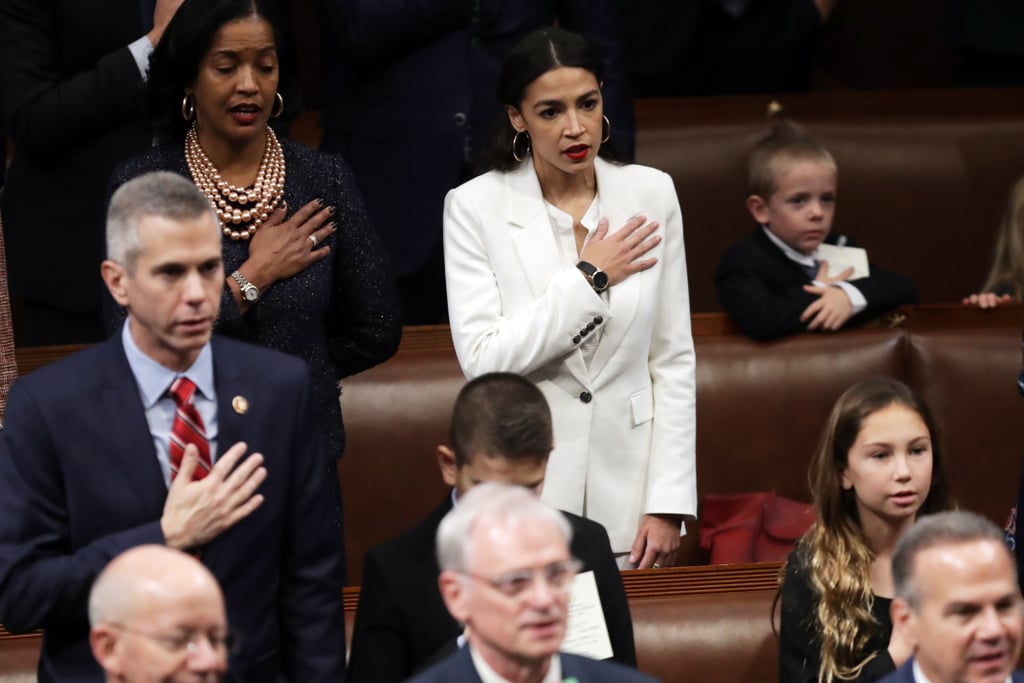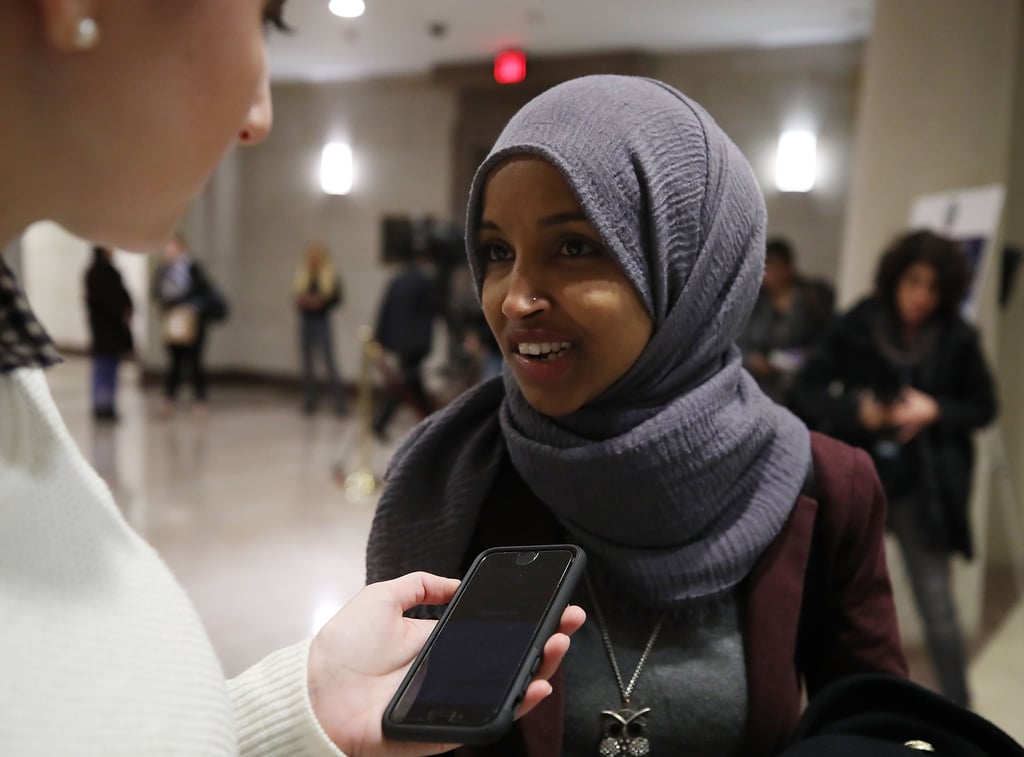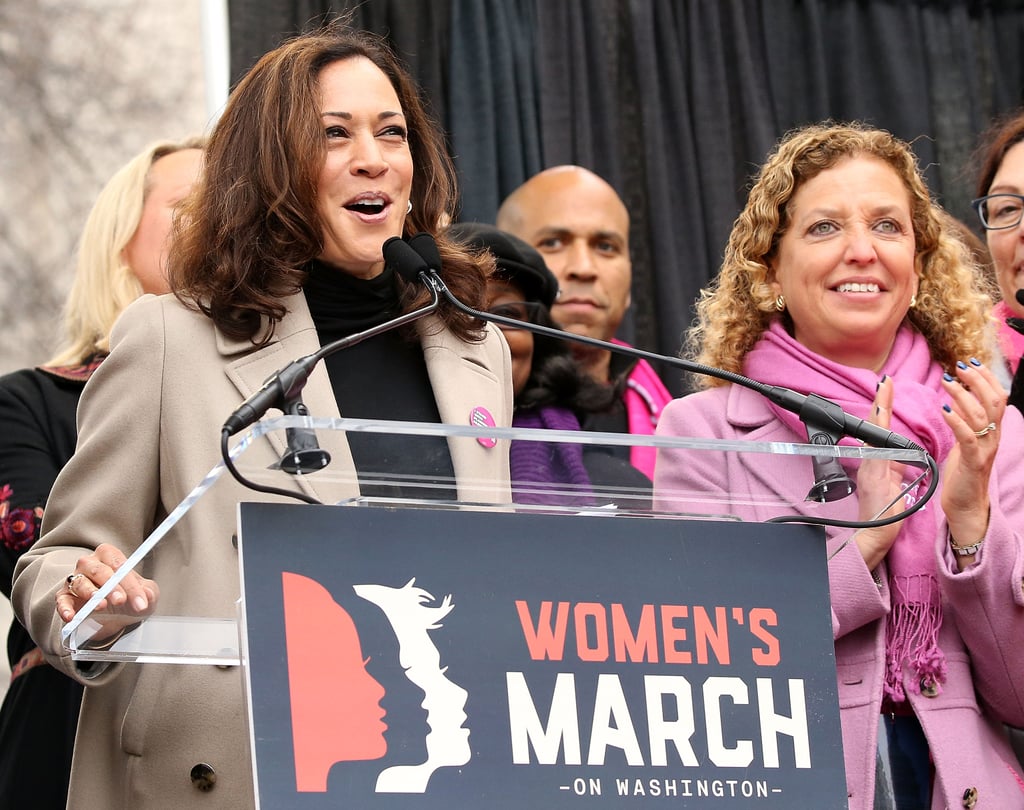With the 116th Congress and its historic numbers of women [1] now officially sworn into office, it's important to recall the second Year of the Woman is more than just an exciting time for representation. There's plenty of sound evidence that this new wave of women legislators could mean real change in how the American government operates — for the better.
The new Congress, which was sworn in on Jan. 3, includes 125 women — 18 more than the 115th Congress. That marks an almost 20 percent increase in women's representation. The majority of the newly elected women Congress members are pro-choice, Democratic women who support policies to empower women and marginalized people.
The often frustratingly ineffective nature of the male-dominated federal government has come to a head in recent weeks, taking the form of a government shutdown emblematic of the modern landscape of partisan gridlock. The government shutdown itself concerns President Trump's promised US-Mexico border wall, a symbol of racism, hypermasculine notions of cruelty as strength and refusal to compromise. And while Congressional partisanship and ineffectiveness have reached new extremes in the Trump era, the reality is that male-dominated Congress has been neglecting key domestic issues such as education, environmental, and health care policy for years.
But with a new wave of historic numbers of women legislators sworn in to Congress this week, all of this could soon change. Here are some key ways women are poised to transform the American government — and the research to back it up.
1. Congress could actually start getting things done.
Political science research from Georgetown University found that liberal female legislators cosponsored, introduced, and passed more bills than their male counterparts. In 2009, the study found the average female legislator had 2.31 of her bills enacted, compared with male legislators [2] who saw just 1.57 of their bills enacted.
The same research found that among liberal-leaning legislators, women cosponsored an average of 10.6 bills concerning women's health, compared with 5.3 from liberal male legislators.
Another study found female legislators on average send more funds back to their districts than their male counterparts. Districts represented by women received $49 million more annually [3], on average, compared to male-represented districts.
One reason women legislators tend to be more productive and fight harder on behalf of their constituents is that they often face more hurdles due to sexism and other gendered disadvantages on the campaign trail, and in life. As a result, women legislators are often more skilled, more qualified, and all-around more ambitious than their male counterparts.
Of course, a reality of the split Congress is that progressive bills introduced by women lawmakers will likely be rejected by the Republican-controlled Senate, or vetoed by President Trump. But nonetheless, legislation and advocacy that advances crucial, oft-neglected progressive issues is important for the conversation, awareness, and progress that stems from such efforts.
2. We could see more bipartisan efforts.
More progressive legislation from women lawmakers might stall, but that's not to say they won't get anything done. Regardless of their political party, women legislators are also more likely to work across the aisle [4] and be successful in bipartisan, collaborative efforts.
Research by Quorum Analytics showed the average female senator cosponsored 171.1 bills with members from another political party, while male senators cosponsored just 129.9. Women legislators are also more likely to work together. In the 116th Congress, the average female senator cosponsored 6.29 bills with another female senator, compared to male senators cosponsoring just 4.07 bills with other male senators.
There is no shortage of issues, from family separation policies to funding crucial reproductive healthcare resources, that liberal lawmakers can't and shouldn't compromise on. But unless we all find more common ground and take action, incidents like the disastrous government shutdown will continue to happen, and many vulnerable Americans will suffer as a result. More women legislators could change this.
3. Issues like healthcare and education will likely get the attention they deserve.
Research has also shown that women legislators are more likely to work on key, oft-neglected domestic issues, [5] like education, healthcare, social welfare and the environment. Rep. Alexandria Ocasio-Cortez has already gotten a head start by taking the lead on her Green New Deal initiative to create clean-energy jobs, while Rep. Ayanna Pressley already has a thorough, detailed policy agenda for promoting equity [6] in K-12 and higher education.
America faces an ongoing crises of college affordability and a failure to invest in teachers and public schools. Millions of Americans lack health insurance, and millions could lose the insurance they have if the Affordable Care Act is gutted. It's clear that domestic policy, which affects the everyday lives of most Americans far more than anything else, must be a priority of the 116th Congress. And thankfully, due to the election of more women, this will probably be the case.
4. Sexual harassers and abusers in Congress will be taken to task.
The #MeToo movement has brought to light sexual abuse and exploitation of power across every industry, and certainly in politics. Over the past year, male legislators across party lines have resigned or been pushed out of office amid allegations of sexual harassment, groping, sexually assaulting underage girls, and even soliciting female aides to birth their children [7]. Meanwhile, male legislators across party lines — namely Senators Mitch McConnell and Chuck Schumer — have been instrumental to rejecting or stalling sexual harassment reform [8] bills that received unanimous support from female senators. In the Senate, Republican men paved the way for the confirmation of Supreme Court Justice Brett Kavanaugh by dismissing and discrediting the women who accused him of sexual assault and misconduct.
Electing more women will almost certainly have plenty of legislative benefits in the form of greater productivity, greater bipartisanship, and greater focus on important domestic policy areas. But it will also make Congress safer and reduce exploitation of power.
5. Roe v. Wade will have a new layer of protectors.
According to a Rewire report from 2017, the overwhelming majority of anti-choice legislation in state legislatures was introduced by white Republican men [9], who are also often the architects of Planned Parenthood defunding efforts and witch hunt investigations [10]. The election of more pro-choice, Democratic women means more advocates for women's reproductive rights, and more legislators who understand the common barriers everyday women and girls face to receive care.
Additionally, the incoming class of Congress boasts more members than ever who say they oppose the Hyde [11] amendment, a discriminatory federal law banning federal funding of elective abortions that has been in effect since 1976. While restrictions on abortion care often only make the process of receiving care more dangerous and difficult, the Hyde amendment has been successful in stopping one in four low-income women [12] from receiving abortion care.
Women's focus on issues of health care and family leave will also disproportionately help women, and in the case of family leave, could also be key to addressing the gender wage gap.
Arguably most important of all, the historic numbers of women in the 116th Congress could inspire more women who previously wouldn't have imagined getting involved in politics to step off the sidelines. More women were elected to Congress than ever before this year, and hopefully, this is the start of a new trend — and a new way of doing politics in America.




